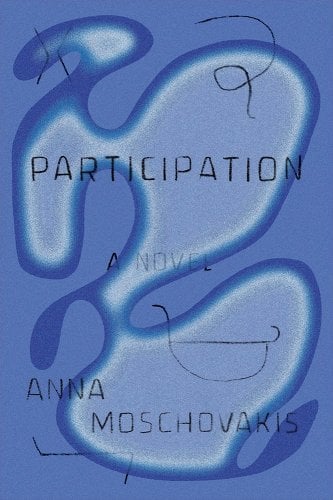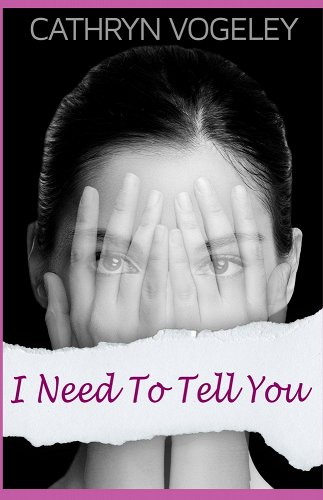by Walter Holland
Franny Choi and Courtney Faye Taylor are two compelling poets of our fraught political moment who succeed in capturing the pulse of the American now. The two poets take different paths; in The World Keeps Ending, and the World Goes On, Choi offers an expansive meditation on our troubled society and its dystopian state, while Taylor, in Concentrate, channels heartrending research about one forgotten victim of racial injustice into a larger indictment of American institutional racism.
“Good Morning America” provides a sense of Choi’s provocative and well-crafted political verse:
Catch up—it’s the anniversary of the aftermath
of another bad massacre, and I’ve got
plenty of seats. Come in, I whisper
to the wailing in the attic, Come in to the thunder,
to any sound that’ll shake me from doom’s haze.
Dispatches from Kenosha,
Louisville, Atlanta, arrive, arrive
like a steady kickdrum of sparrows
spatchcocked by gravity, little nevers,
little couldn’ts; too late to stop the video,
too late, too late.
Choi deftly captures here the tumult of our American moment; in this, she joins poets such as Danez Smith, Morgan Parker, and Justin Phillip Reed. The image of sparrows “spatchcocked”—literally split open at the spine to lay flat—evokes images of police brutality, mass murder, and other events that have indeed become a “steady kickdrum” of injustice. We’ve seen the smartphone videos surface with endless evidence of American racism at work.
The poems in The World Keeps Ending, and the World Goes On are spare in language and brutally direct; Choi’s honest style of attack gives her poetry stinging irony. However, Choi doesn’t preach. Her instinct is to avoid commentary and instead to use her keen eye and ear to lay out the facts. In an age during which the very nature of truth and fact have been contested, Choi captures the moral conundrum implicit in Hans Christen Andersen’s tale “The Emperor’s New Clothes.” As Andersen does in his parable, Choi challenges the reader to see the truth behind our delusions, spin, and split seams of absurd reasoning. She reveals the truth hidden under the imaginary cloth of our showy malfeasance.
Choi’s list poem “Things That Already Go Past Borders” is a perfect example. The title immediately undermines our simplistic belief that building a physical border wall will prevent all future threats. “Things That Already Go Past Borders” begins:
trade deals; pathogens; specific
passports; particular skill sets; vegetables; car
parts; streaming rights; seasonal workers; some
insects; certain birds; religion; dialect; music
at the right volume; headlights; human
remains; wireless signals; all manner
of money; of memory; people
This mix of abstract and concrete nouns suggests the insoluble paradox of trying to keep out of the country “trade deals” and “vegetables,” or “religion” and “human remains.” The irony is heightened when we consider how ubiquitous American culture has already become, spreading globally despite the efforts of the most advanced of nations.
In “Science Fiction Poetry,” Choi is again ironic. The tag at the start of each line is “Dystopia of,” and by repeating the word, Choi plays with hyperbole and understatement to undermine the term’s grim prophecy. The Oxford Englsh Dictionary defines “dystopia” as an “imagined state or society in which there is great suffering or injustice, typically one that is totalitarian or post-apocalyptic.” Choi contrasts this “imagined state” of “great suffering or injustice” with what we see today in plain sight—for example, the contrast between the discomfort of sitting “all day in an air-conditioned conference hall with no sweater” and the suffering of “houseless people and boarded-up houses on the same city block.” She continues: “Dystopia bail out the coal plants if you want to live” and “Dystopia very lonely on Mother’s Day.”
In the end, Choi points out how, historically, this dystopian self-delusion has been cyclical and generational. She draws on the struggles of her Korean grandmother and great-grandmother and her own childhood memories of discrimination in the U.S. Like Andersen, Choi points to the bizarre paradox between what truth tells us and what American society would have us imagine, and reveals how we equivocate between our claims to morality and our already existing semi-totalitarian injustice. Through poetry that is stunningly well-crafted and fresh, Choi bares the naked realities under our thinnest of ethical pretensions.
• • •
In 1973, the author Alice Walker searched through the overgrowth of a segregated cemetery, the Garden of Heavenly Rest in Fort Pierce, Florida, before stumbling upon the unmarked grave of Zora Neale Hurston, a literary star of the Harlem Renaissance. Hurston was rescued from her anonymity and recognized as a victim of cultural and economic racism. In a like manner, poet Courtney Faye Taylor, in her new book Concentrate, searches the impoverished cemetery of Paradise Memorial Park in Santa Fe Springs, California. She is looking for the grave of Latasha Harlins, the fifteen-year-old Black girl who was shot to death in Los Angeles for supposedly shoplifting a $1.79 bottle of orange juice. Soon Ja Du, the fifty-one-year-old woman who shot Harlins in the back of the head, was convicted of voluntary manslaughter and sentenced to ten years in prison, but her sentence was suspended to five years of probation and community service with a restitution of $500. Du’s light sentencing was one of the events that sparked the 1992 Los Angeles riots.
Taylor never finds Harlins’s grave—her remains were allegedly exhumed in a cemetery scheme to dispose of minorities in mass unmarked “piles” while burying lucrative customers in traditional graves.
The title of Taylor’s book, Concentrate, is a provocative one: It refers partly to the fact that the bottle of orange juice Harlins was accused of stealing was the cheap concentrate variety, not the tonier kind that is a staple of middle-class suburbanites far beyond America’s food deserts. Concentrate has several definitions, according to Merriam-Webster: “to bring or direct toward a common center or objective, i.e., focus”; “to gather into one body, mass, or force”; and “to focus one’s powers, efforts, or attentions.” Indeed, Taylor has sharply focused on a singular objective: to concentrate on the undiluted truth and formidable outrage that Harlins’s death provokes to this day.
Through prose poems, found poems, essayistic freeform, and visual imagery from leaflets and in collages, Taylor seeks to restore Harlins’s dignity and bring the injustice of her death back to national attention. As with the murder of George Floyd and the growth of the Black Lives Matter movement, a new effort is being made to preserve the memory of victims of injustice such as Treyvon Martin, Breanna Taylor, and Ahmaud Arbery, and to draw the focus of a nation too often distracted and overwhelmed by the sheer number of episodes of racist violence which play out and disappear in our daily news cycles.
In the poem “Arizona?” we are introduced to Taylor’s beloved Aunt Notrie. As a young adolescent girl, Taylor listens to her aunt give her “The Talk”: that discomforting lecture about how Black boys and girls in America must navigate a racist society to ensure their survival. While Notrie does Taylor’s hair, she implores the child “<*keep still now*” as Taylor replies “>I’m trying to.” Notrie tells Taylor to “concentrate” on the story of Latasha Harlins and her death in order to drive home the dangers Black people face on a daily basis should they not practice passive and deferential behavior around whites. Taylor says she is “trying to” keep still when her aunt says:
<Ain’t about trying, it’s about doing. How
else you plan to survive? Live a life of
trying and you just end up tried . . .
All that child was tryna buy
was a drink.
<Arizona?
<South Central.
Aunt Notrie mentions the death of Trayvon Martin to point out that this threat is real to all Black children regardless of gender:
<Boys ain’t the only cause of chalk-
ines. You got that allergy to sixteenth
birthdays too, understand?—*sit up
straight*—This was OJ.
Taylor’s language is concise, and her tone is direct—her messages are sobering but poignant. Harlins died at fifteen. Trayvon Martin died at seventeen carrying Skittles in his pocket. Taylor is told she may never reach sixteen just for being a target of white suspicion.
In “A thin obsidian life is heaving on a time limit you’ve set,” the racist assumptions behind surveys of both white and Black women, in the magazines Country Living and Ebony/Jet respectively, are revealed. The women must identify their three greatest fears: The white women list “1. Nuclear war in US / 2. Child dying of terminal illness / 3. Terminal illness of self,” while the Black women list “1. Dogs / 2. Ghosts / 3. CCTV.” Taylor’s take on this is nothing short of dazzling:
Stereotypes are centipedes at ease
in bowls of bleach. Or liberation lit
with wicks, and then Katrina—that’s
a stereotype. When company’s mixed. I’ll pet
king shepherds, adore mausoleums, suck my
teeth in corner store camcorders, although
privately—under nouveau R&B and the tutelage of
quick weaves—the Chesimard in me counts horror on
a matte black abacus. There is no fear on
earth that has ever gone unhad or
unbereaved, but the Diaspora won’t have it be
known that dogs, ghosts, and CCTV are
a melody defining out costs, copywriting our loss.
The lethal music of Taylor’s language, with its internal rhymes and unfettered consonance, is evident: “lit” joins with “wicks,” “R&B” with “quick weaves,” and “unbereaved” with “CCTV.” We hear the speaker’s sharp sarcasm as she points out the angry undercurrent of her thoughts, which must be suppressed in mixed company; we hear too how she silently counts the many racist horrors through history on her “black abacus.” Concentrate inventively inserts edgy, caustic observation under the veneer of a complicit understanding. In language that festers as though buried alive, Taylor succeeds in disturbing even the most silent of cemeteries and in resurrecting the desecrated dead.











